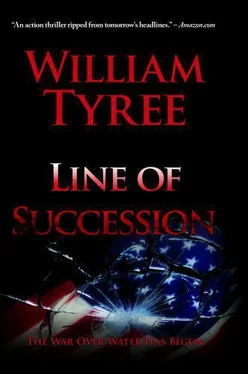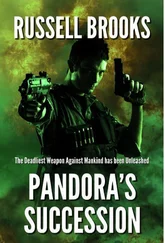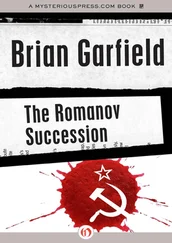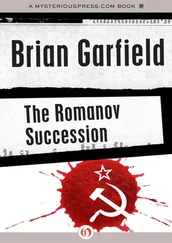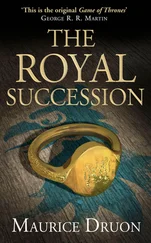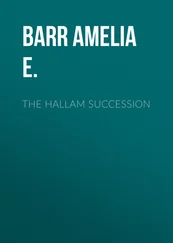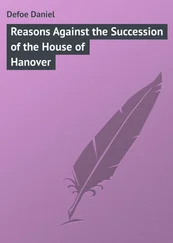William Tyree - Line of Succession
Здесь есть возможность читать онлайн «William Tyree - Line of Succession» весь текст электронной книги совершенно бесплатно (целиком полную версию без сокращений). В некоторых случаях можно слушать аудио, скачать через торрент в формате fb2 и присутствует краткое содержание. Год выпуска: 2010, Издательство: Massive Publishing, Жанр: Триллер, на английском языке. Описание произведения, (предисловие) а так же отзывы посетителей доступны на портале библиотеки ЛибКат.
- Название:Line of Succession
- Автор:
- Издательство:Massive Publishing
- Жанр:
- Год:2010
- ISBN:нет данных
- Рейтинг книги:3 / 5. Голосов: 1
-
Избранное:Добавить в избранное
- Отзывы:
-
Ваша оценка:
- 60
- 1
- 2
- 3
- 4
- 5
Line of Succession: краткое содержание, описание и аннотация
Предлагаем к чтению аннотацию, описание, краткое содержание или предисловие (зависит от того, что написал сам автор книги «Line of Succession»). Если вы не нашли необходимую информацию о книге — напишите в комментариях, мы постараемся отыскать её.
Line of Succession — читать онлайн бесплатно полную книгу (весь текст) целиком
Ниже представлен текст книги, разбитый по страницам. Система сохранения места последней прочитанной страницы, позволяет с удобством читать онлайн бесплатно книгу «Line of Succession», без необходимости каждый раз заново искать на чём Вы остановились. Поставьте закладку, и сможете в любой момент перейти на страницу, на которой закончили чтение.
Интервал:
Закладка:
“We don’t get too many stunt drivers,” the officer said, looking at the ramps that Ahmed had set up for practice. “Well, that explains the props.”
“Is there a problem, officer?”
“You’re on private property. I’ll need to see driver’s license and registration.”
“Yes sir.” Ahmed pretended to look in his wallet. He glanced at his watch. He reckoned that the act of subduing the officer, tying him up and transporting him home would take at least an extra two hours of his time, maybe more. It wasn’t worth it. He couldn’t risk the mission. There were others to consider. The timing was critical.
He made his choice.
“Here you are,” Ahmed said. He drew his.38 and fired a round into the officer’s chest. The officer fell to the ground. Ahmed fired two more shots into the officer’s ample gut to make sure he was dead.
He got out of the truck and lifted the officer by the shoulders toward the rear of the patrol car. He popped the trunk and, with some difficulty, lifted the dead weight up high enough to roll him in. He started the car and drove it into a dense field of high grass and young poplar trees at the end of the strip until it was completely obscured by the greenery.
He scratched his arms as he made his way out of the field. By the time he reached the truck, a rash had discolored his wrists, hands and forearms. He cursed the officer and climbed back into the truck. He had to get to a pharmacy. His mission would begin in less than five hours.
The White House
6:50 a.m.
This wasn’t Blake Carver’s first meeting in the Oval Office, yet it seemed as if every drop of moisture in his mouth had evaporated. His stomach had quivered less during joint-op missions with Green Berets in Afghanistan. The awe-factor Carver felt had little to do with President Isaac S. Hatch, the unpopular Chief Executive who sat on the couch opposite him in a white monogrammed robe and slippers, or Julian Speers, who sat beside him. It was what the office represented. It was the great ones who had sat there before them. FDR. JFK. Elvis.
The President thumbed through the 40-page brief that Speers had put the finishing touches on only minutes before. The paper in the President’s hands was still warm from the printer.
Carver and Speers had come directly from Field House DC310, where O’Keefe still remained with Lieutenant Flynn. They wore yesterday’s suits and a piece of sugarless gum had substituted for a toothbrush. All Carver’s days seemed to be like this. It was the reason he kept his black hair clipped to a quarter-inch on the sides and an inch on top. It always looked the same no matter how long he had been up or what part of the world he had flown in from. Whenever his job allowed him to be in Washington, he went to this young barber on Adams Morgan who shaped it with a straight razor.
Mary Chung, the President’s longtime personal assistant, entered with three cappuccinos on a tray. The President took a cup and continued to skim the document. Speers also helped himself. He took a moment to inhale the aroma of the ultra-potent brew that the White House barista had invented for the always-wired President. Carver politely declined.
“You’ve gotta be the only person in Washington who’s never set foot in Starbucks,” Speers said. “And you’ve been awake, what, thirty hours?”
“Never touch the stuff,” Carver said of caffeine. He had been raised Mormon in a predominantly LDS town in rural northern Arizona. He’d long since quit the LDS Church, but the religion’s edicts of clean living still agreed with him. The nature of Carver’s work kept him from living a saintly life, but he still treated his body like a temple. To this day, he’d never touched alcohol.
“So what’s your vice?” Speers pressed him. “Ginseng? Sugar?”
“Exercise,” Carver explained. “Blood to the brain.” He eyed Speers’ pot belly, accentuated by the wide floral tie that draped over it. “You should try it sometime.”
Speers wiped cappuccino foam off his goatee. “You really expect me to believe that you’ve never had caffeine.”
“Okay, once,” Carver admitted. “In ’06. I was in Columbia.”
“Columbia?” Speers said. “I didn’t see that in your CIA file.”
“By design, no doubt. Anyhow, my leg got caught in a rodent trap made of sharpened bamboo.”
“Who kills a rat with bamboo?”
“Wal-Mart hasn’t yet made it to the Columbian countryside, Chief. And this thing was really bad news. By the time I put on the tourniquet and could think about getting the hell out of there, I’d lost a lot of blood. I came across a coffee plantation and decided, for energy’s sake, to eat some beans straight from a tree.”
“See? Caffeine saved your life.”
“No. It almost killed me. I had the runs so bad I barely made it back to Bogota.”
The President finished scanning Speers’ report and set the document down beside him on the couch. “This is a heckuva brief,” he said, folding his reading glasses and shoving them into his robe pocket. “Not quite brief enough, though. Paraphrase for me.”
Speers leaned forward. “We think there’s sufficient cause for a public investigation into DOD’s oversight of Ulysses USA.”
“Public?” the President said. “No, no, no. First I need to know definitively whether Ulysses USA is up to any hanky panky.”
“With all due respect, sir,” Speers said, “we started with that. We’re not saying that Ulysses isn’t the end buyer for the missing weaponry. We don’t know that for sure yet. But we’re saying that the trail seems to begin within the Pentagon. Or your own Cabinet, sir.”
This wasn’t the answer that the President wanted to hear. He had created a monster in Ulysses USA, and he was looking for a way to kill it. Ulysses’ growth had coincided with a major downturn in U.S. military recruiting that had left America far short of the troops it needed to fulfill the President’s commitments at home and abroad. Having run on a platform of change — principally a change from the previous administration’s devotion to an open-ended assault on Islamic radicalism — he had, after two terror attacks on American soil, ended up entangling American forces in more foreign conflicts than ever.
If the Pew Research polls were to be believed, President Hatch’s foreign quagmires had now made him the most unpopular President since Richard Nixon. With so little mandate, a military draft was not a feasible option. He didn’t have enough support in Congress, to say nothing of the military itself, which prided itself as an all-volunteer organization. Even suggesting it would have been political suicide. Facing a significantly downsized military, the Joint Chiefs had proposed outsourcing some of the fighting to Ulysses USA.
President Hatch had been a businessman long before taking up politics, and the concept of outsourcing a governmental role to a more cost-effective private-sector company was, in principal, an appealing way to bolster the Virginia Democrat’s pro-business reputation. It was also hard to argue with the economics. Training a volunteer army with taxpayer money — and paying out VA benefits for as long as they lived — had simply gotten too expensive. It was pricey on the recruiting end, too. After the quagmires in Indonesia and Afpak, even the grunts in the infantry were demanding $15,000 signing bonuses.
The President thumbed through the report again and leaned forward. “This is a helluva accusation. You have proof?”
“I wouldn’t say proof per se,” Speers said, “but we think that a small group of officers is supervising it, and that someone high up in DOD is the puppet master.” He looked at Carver. “Tell him.”
“Mister President,” Carver said, speaking softly. “It’s possible that Defense Secretary Jackson may be connected to this.”
Читать дальшеИнтервал:
Закладка:
Похожие книги на «Line of Succession»
Представляем Вашему вниманию похожие книги на «Line of Succession» списком для выбора. Мы отобрали схожую по названию и смыслу литературу в надежде предоставить читателям больше вариантов отыскать новые, интересные, ещё непрочитанные произведения.
Обсуждение, отзывы о книге «Line of Succession» и просто собственные мнения читателей. Оставьте ваши комментарии, напишите, что Вы думаете о произведении, его смысле или главных героях. Укажите что конкретно понравилось, а что нет, и почему Вы так считаете.
